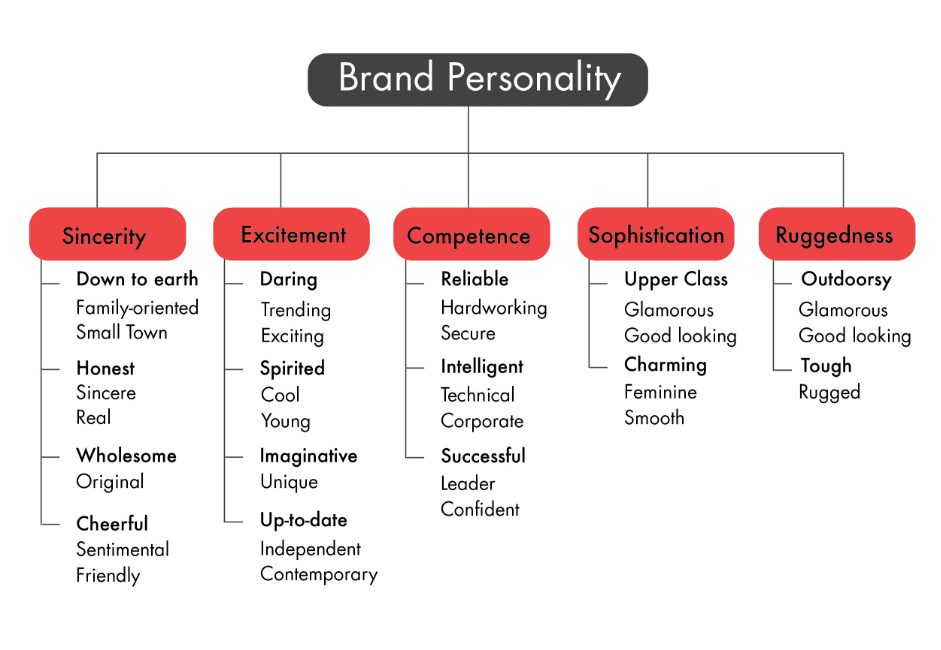
Brand personality refers to the set of human characteristics and traits that are attributed to a brand. Just like individuals have unique personalities that define who they are and how they interact with others, brands too have their own personalities that shape the way they are perceived by consumers. This includes traits such as sincerity, excitement, competence, sophistication, and ruggedness.
The significance of brand personality lies in its ability to differentiate a brand from its competitors and create a strong emotional connection with consumers. A well-defined and consistent brand personality helps to build brand loyalty, increase brand recognition, and drive purchasing decisions. It also helps to establish a brand's identity and create a distinct brand image in the minds of consumers.
Brand personality is also important in shaping how a brand communicates with its target audience. By understanding the personality of a brand, marketers can develop branding strategies that resonate with consumers and create a meaningful brand experience. For example, a brand that is perceived as adventurous and daring may use bold and eye-catching visuals in its marketing materials, while a brand that is seen as sophisticated and upscale may use elegant and refined messaging.
Overall, brand personality plays a crucial role in shaping consumer perceptions and building brand equity. By defining and communicating a strong brand personality, companies can create a distinctive brand identity that resonates with consumers and sets them apart in the marketplace.
Therefore how do you go about defining and creating your brand personality? The first task is to look at the category in which you operate and what is the expectation of the category from a consumers stand point. Secondly, the category would have got shaped by the attitude and approach of the consumers towards the benefits they are seeking. For example financial products are highly involving and tend to be serious while fashion can be high involvement but the approach can be casual. Once the category and the attitudes towards it is defined look at the competition and illustrate their emerging brand personality by doing a competitive communication audit. The last but the most important aspect is look at the consumers and see what are they seeking from the category. It could be trust, empathy, appeal, feelings etc.
Understand what attributes best describe the brand personality you wish to create for your brand. Create your consumer personas and make communication concepts that seem to best work for our brand and one that stands differentiated. Translate these concepts into your final brand design and communication and look at the emerging brand personality. The sharper it gets the better the brand’s ability to stand apart within the category.
In The Journal of Marketing Research, Jennifer Aaker outlines five dimensions of brand personality: sincerity, excitement, competence, sophistication, and ruggedness. These five pillars can be jumping-off points when identifying your own brand's personality.
